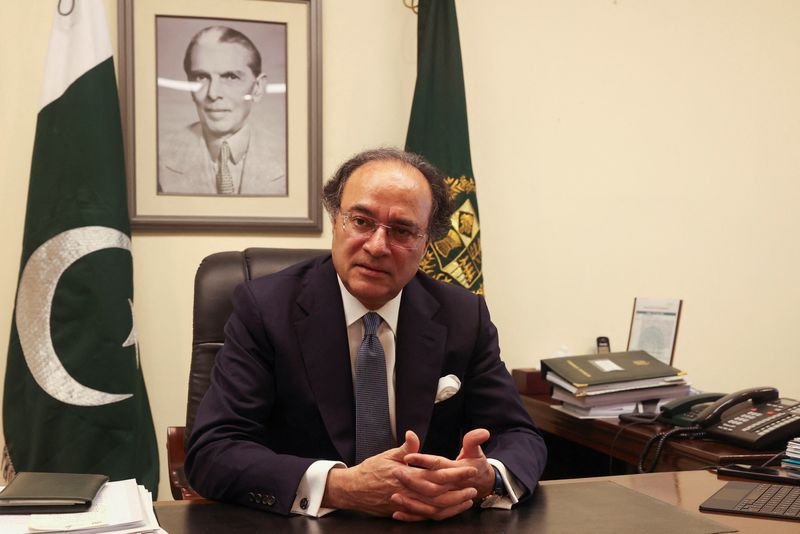By Asif Shahzad
ISLAMABAD (Reuters) - Pakistan discussed its $7 billion bailout reform agenda with the International Monetary Fund during an unscheduled staff visit last week, Finance Minister Muhammad Aurangzeb said on Sunday, suggesting no new taxes are to be imposed.
The talks in Islamabad came within six weeks of the IMF approving the bailout, an unusual move as it is rare for the fund to discuss reforms ahead of a review of the reform plan under the loan programme.
A first review of Pakistan's reforms is due in the first quarter of 2025.
"We discussed reforms in taxation, energy sector, privatisation of loss-making state-owned enterprises (SOEs) and public finance," Aurangzeb said in a recorded video statement broadcast by state-run television.
After wrapping up the visit, the IMF had said it was encouraged by Islamabad's reaffirmed commitment to the economic reforms under the Extended Fund Facility its board had approved in September to reduce vulnerabilities.
The mission did not state the weaknesses, but sources in Pakistan's finance ministry have said some major lapses prompted the IMF's visit.
Among these were a shortfall of nearly 190 billion rupees ($685 million) in revenue collection during the first quarter of the current fiscal year, the sources said.
The period also saw an external financing gap of $2.5 billion, while Pakistan failed in the bid to sell its national airline.
It had prompted fears that Pakistan might need to impose new taxes to bridge the shortfall.
But Aurangzeb said the shortfall will be met only with enforcement to get people to pay their taxes, implying there would not be any new revenue measures.
"We are going to be very firm on compliance and enforcement," he said, adding that al the sectors will have to play their role in contributing towards the country's economy.

The IMF said both sides agreed on the need to continue prudent fiscal and monetary policies, and to mobilise revenue from untapped tax bases.
Pakistan's $350 billion economy has struggled for decades with boom-and-bust cycles, needing 23 IMF bailouts since 1958.